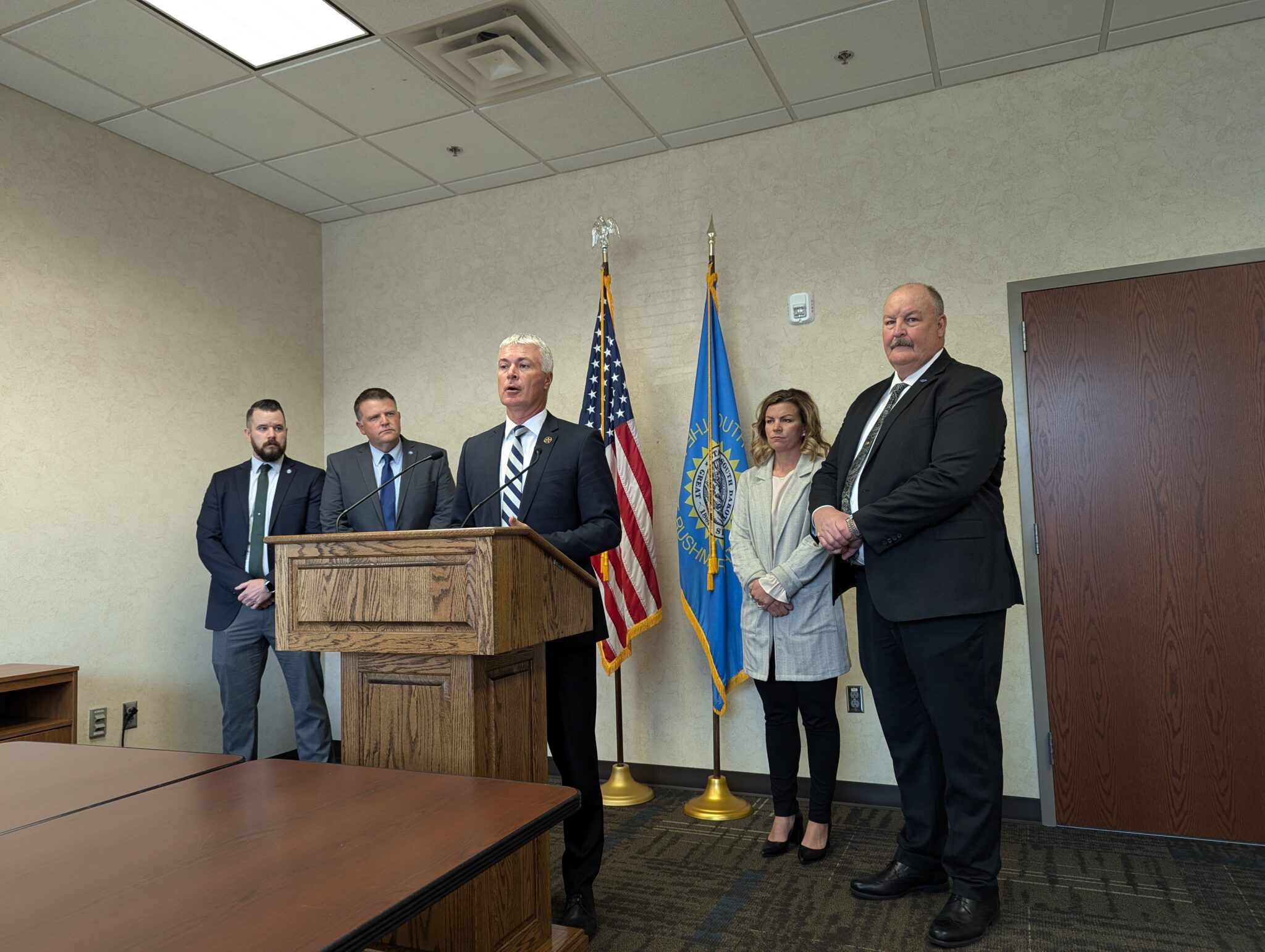
John Hult, South Dakota Searchlight
SIOUX FALLS — Two former state employees have been indicted in a fake vehicle title fraud scheme through the state Department of Revenue.
Attorney General Marty Jackley announced the charges at a Wednesday press briefing in Sioux Falls.
Jackley also announced his intention to push for an anti-corruption law during the upcoming legislative session.
The proposal would include requirements for state employee supervisors to report questionable employee behavior to the Attorney General’s Office, protections for whistleblowers, stronger protections for the state auditor, and transparency requirements for reporting on allegations of state employee misbehavior.
The proposal would also empower the state auditor to investigate misbehavior without interference.
“I think there needs to be more reliance on the state auditor,” Jackley said.
News of the indictments against two more state employees comes on the heels of criminal charges for former Department of Social Services employee Lonna Carroll, who’s accused of embezzling $1.8 million from the state by creating and approving fake child support orders from 2010 through 2023. Carroll’s jury trial is currently set to begin Dec. 4 in Pierre.
Shortly after Carroll’s alleged behavior came to light, news broke that a now-deceased revenue department employee, Sandra O’Day, had falsified vehicle titles to get bank loans. The new indictments are tied to that case.
Lynne Hunsley, 63, and Danielle Degenstein, 51, both of Pierre, were indicted Oct. 1 by a grand jury in Hughes County. The charges are part of the fallout from the investigation into O’Day, whose family reported oddities in her finances they found after her death this year.
Hunsley is accused of falsifying a vehicle title. O’Day was engaged in similar behavior, Jackley’s office said, putting false titles in her mother’s name to secure loans.
Jackley said Hunsley had purchased a new vehicle, and that she’d created a fake title to claim she had a trade-in vehicle, which allowed her to avoid some excise taxes. Hunsley faces felony forgery, grand theft by deception, failure to pay excise tax and false document charges.
Degenstein allegedly notarized some of the titles for O’Day and Hunsley and “took some action to cover up” what had happened when confronted about the situations by the Attorney General’s Office, Jackley said.
Degenstein is charged with one misdemeanor count of misprision of a felony for failure to report the situations and cooperate with law enforcement.
In O’Day’s case, Jackley said, the former state employee spent years creating fake titles for campers to secure bank loans. That was purposeful, Jackley said, because camper titles are only logged on the state level and don’t appear in a federal database.
The banks involved took financial losses as a result of O’Day’s behavior, Jackley said, but taxpayers could also be on the hook if those banks file civil lawsuits against the state. Defending cases like that would fall on the Attorney General’s Office, Jackley said, and the state would be financially liable for damages awarded in such a case.
The legislative proposal on corruption has yet to be written. Jackley said he plans to take his framework for the legislation to Auditor Rich Sattgast, Treasurer Josh Haeder and Auditor General Russ Olson “to make sure we put in the right provisions that will be meaningful and will hopefully catch some of this that is going on.”
Sattgast told South Dakota Public Broadcasting last month that his office’s authority has been limited by various legislative changes over the years. The state is vulnerable to financial malfeasance by employees for that reason, he said, as well as because his office lacks the staff to properly oversee state government operations.
“There’s not just one entity that oversees the expenditures of state government,” Sattgast said. “We have it all divided up for the checks-and-balance purposes of it.”
In addition to auditor authority provisions and mandated reporting by state employee supervisors, Jackley said he’d want to add whistleblower protections for all employees to protect them from retaliation for reporting misdeeds. When asked if the protections would only cover reports of criminal activity, Jackley said, “I would like to see it go beyond that.”
